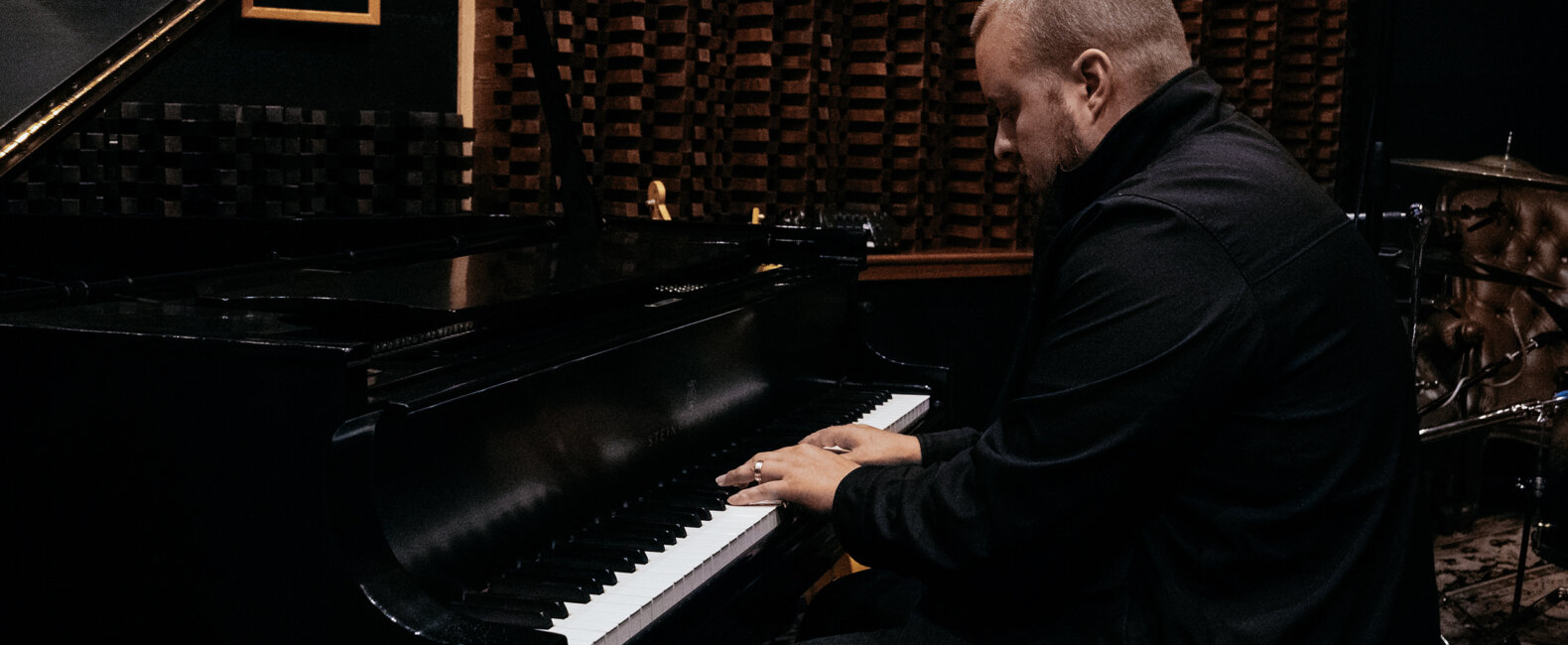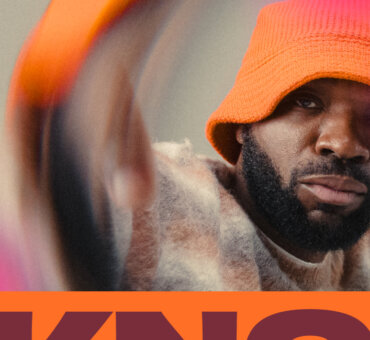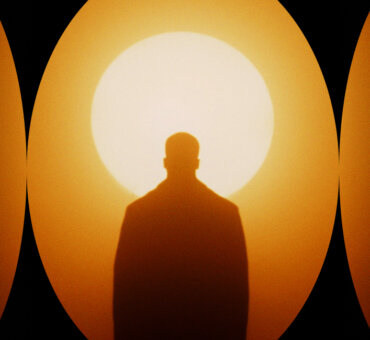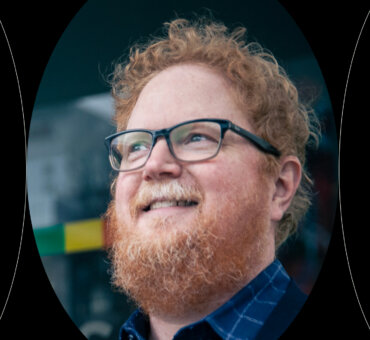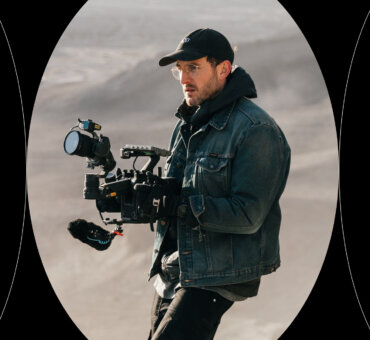Our roster is filled with artists who’ve defined their own place in modern music. With Custom Music, you can now use their talents to build your sound from the ground up with a simple process that’s light on the logistics and heavy on the creative. As part of that process, we’re highlighting our Custom Music Artists’ backgrounds and styles so you can find the perfect composer or producer to create your next soundtrack. Here’s visionary composer Ryan Taubert.
The truth of the matter is, most innovative artists aren’t in it for the success. Quite the opposite, actually. They resist the “proven” avenues to success and continue to push forward anyway, creating a paradox: the most successful creatives are those not driven by success. Instead, they’re so driven (sometimes obsessively) by their love for a craft, they find the success they weren’t seeking in the first place.
Enter Composer Ryan Taubert. He’s become known for his explosive, intricate, and decidedly unique compositions — a style he’s honed on his own terms. As part of our Custom Music roster, he’s a unique voice in modern composing, bridging generational gaps and blurring lines.
The music is enduring, compelling, and awe-inducing in a way that only a Ryan Taubert composition can be. Just listen to the now-iconic sweeping arrangements on his self-titled EP or the big screen-ready, epic instrumentals on Fable. Each carries the mark of a unique composer, even though he can’t even put a finger on what makes him exactly that:
“What makes me unique? That’s a good question. Everything’s inspired. Everyone’s inspired by someone else. I think that’s still a journey I’m on, trying to find that sense of uniqueness. I’m trying to set aside some of the assumptions I have about what film music is supposed to sound like. I don’t know if there’s that much that’s unique; I’m just trying to make music that feels authentic and genuine.”
Another common symptom of someone who’s completely original — they don’t see themselves as such. For someone who’s collaborated on major Hollywood features like Kingsmen: The Golden Circle, King Arthur, Out of the Furnace, and more, he spends less time trying to be original and more time trying to be authentic.
Self-Taught, Self-Made
Ryan’s moment of inspiration came with the release of a film that had a huge impact on children everywhere — future composers included.
My father took me to see Jurassic Park when I was ten at the theater. I remember hearing the music and thinking, ‘whatever that is, I want to create something like that.’ I just remember it was like stepping into a world I’ve never been to before, experiencing something new. I had heard a lot of other music on the radio, but there was something in that music that put me in awe. It felt real and authentic. It’s a hard feeling to explain, but all I knew is whatever I heard I wanted to be a part of it.
I went home and tried to remember the theme in my head to play it on the piano. I couldn’t remember it for the life of me. Months and months went by and it was driving me crazy. Eventually, I was at an arcade with the Jurassic Park pinball machine and heard it. I put my ear against the machine, went home and started playing it right away. I was hooked on film music.
From there, it was all soundtracks. His parents bought him “stacks of them” and he’d sit in his room listening to them, drifting away. He eventually got a full scholarship to college for music but dropped out because he’d already learned how to play a different way — his way.
I’m sitting in this classroom and they’re telling me, ‘You can’t move this note here. You have to move it here because that’s how it’s done. Or this is the proper way to play a chord. There were so many rules and I hated it so much.
So, he resisted. He dropped out of school once, went back, dropped out a second time, and continued to hone his skills as a composer, this time from a more self-taught perspective. He’d work late at night re-creating some of his favorite soundtracks, re-working them, and listening over and over to his recordings via burned CDs in his car. The constant critic, he’d find faults in the recording, take notes, and then go back to the drawing board, learning the “sonic characteristics of an orchestra, how to put the tones together, and balance each of them by ear.”
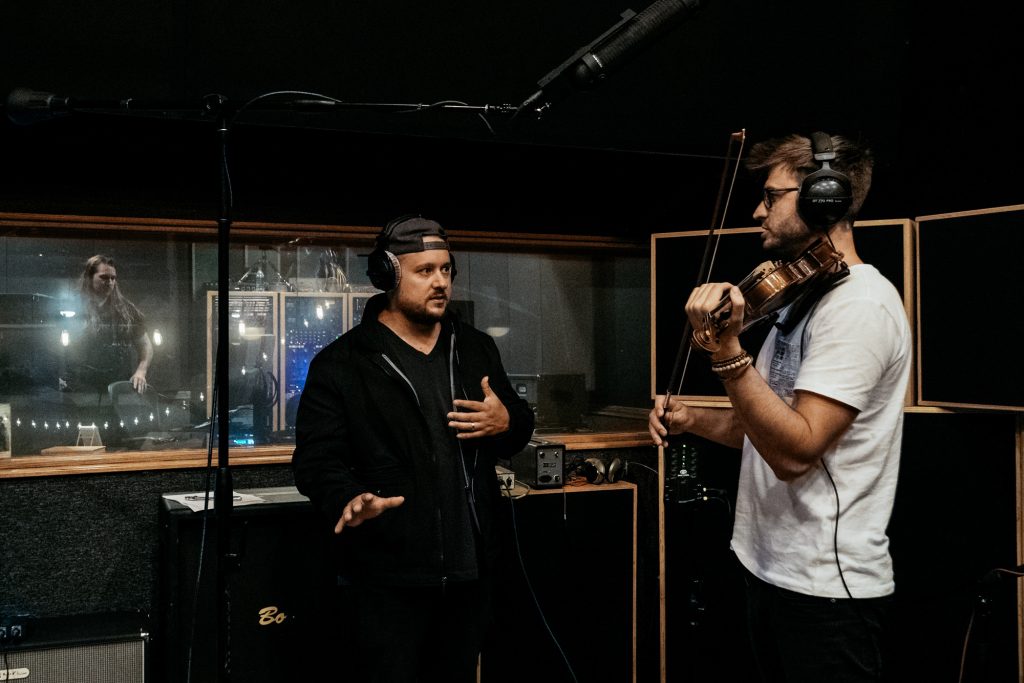
A Sum of Experience
It turns out experience is the best teacher. Ryan moved from the U.S. to Australia in 2006, in an effort to branch out, make new connections in the industry, and explore his limits and potential as a composer. He stayed until 2014, building his in-studio repertoire as an artist, expanding his portfolio of projects and collaborators.
It’s just a process, working with people that you know have different tastes. It was really good for me because I feel like I made so many good pieces of music during that time. It helped me develop a good foundational base for different types of music. Each time I make a track I feel like I can recall a little bit of it in my brain the next time I record something else.
Synced to film or not, Ryan’s work tends to tell a narrative. The compositions dip, swell and expand to fulfill what the story demands — each a unique journey to a different conclusion. It makes sense, then, that the story never leaves his mind from the start of the collaborative process. He works through the characters, the ebb and flow, even the “color” of the film.
I try to focus on the story as much as possible. As soon as I veer from the story, things go wrong. I try to stick to that narrative, understand the characters and their motives. A lot of times there’s a rough cut and we’ll go through it just to establish the world the director is trying to create so I can match the sonic characteristics. I see the film in colors as well. The way the color of the film works can determine the sound of the score. But, yeah, a lot of times we’re just talking about the heart of the story and it shapes most of my projects.
Change is the Only Constant
The diversity of Ryan’s work reflects his diverse influences and experiences. Ryan’s instrumentals are eclectic not because of interest or taste, but more because of the breadth of his portfolio. He’s worked in nearly every aspect of the film industry as a composer, collaborating with brands on commercial campaigns (Acura, Everlast, Lincoln, McLaren, and more) and on the narrative side as well, from feature films to short independent projects.
Ryan, working out of his studio in LA, is always looking for ways to make the process fun and adventurous. Choosing not to be boxed in, he has embraced the challenge, allowing himself to step into uncomfortable territories with music.
I think people may be more creative than me, but fighting against the rules is something that I always do and will never stop doing. You are always fighting yourself because naturally, your brain wants to create something that feels comfortable, that feels familiar. As soon as you’ve got to that state of familiarity, the music is probably already dated. That’s why it feels familiar. I really think it’s a constant battle, honestly, because the rules keep changing. What was done in a certain way five years ago is completely obsolete now.
Someone asked me once how they get outside of their dated way of hearing music to create some new-sounding stuff. I said, “Well, you have to start listening to new music. You have to listen to stuff you don’t think you’d like, things that may even be weird. You have to get out of your head and that box you’ve put yourself in.” For me, it’s a constant battle of trying to break the rules. Every time I create a new track, I’m thinking, ‘I did it this way a year ago. I’ve got to figure out a new way of doing it. I’ve got to create something I haven’t heard before.’
That thought brings us, and our conversation, full circle. Back to the kid who composed by ear, learned the Jurassic Park theme song via pinball machine, and dropped out of school to give himself an education. He never sought success but found it anyway.
You can use Ryan’s world-class musicianship to create your own song or score from scratch with Original Music. We’ve made the process simple — heavy on the creative, light on the logistics — so you can get the perfect sound for your project. Learn more about Custom Music.















































































